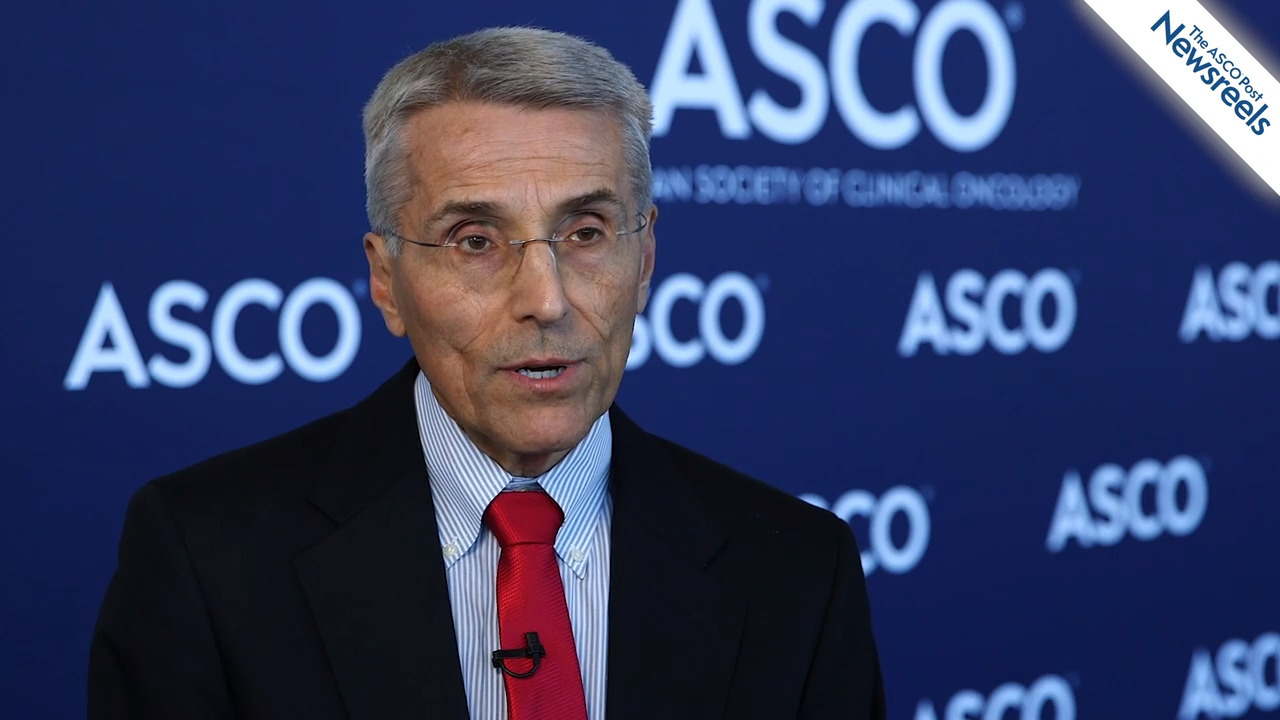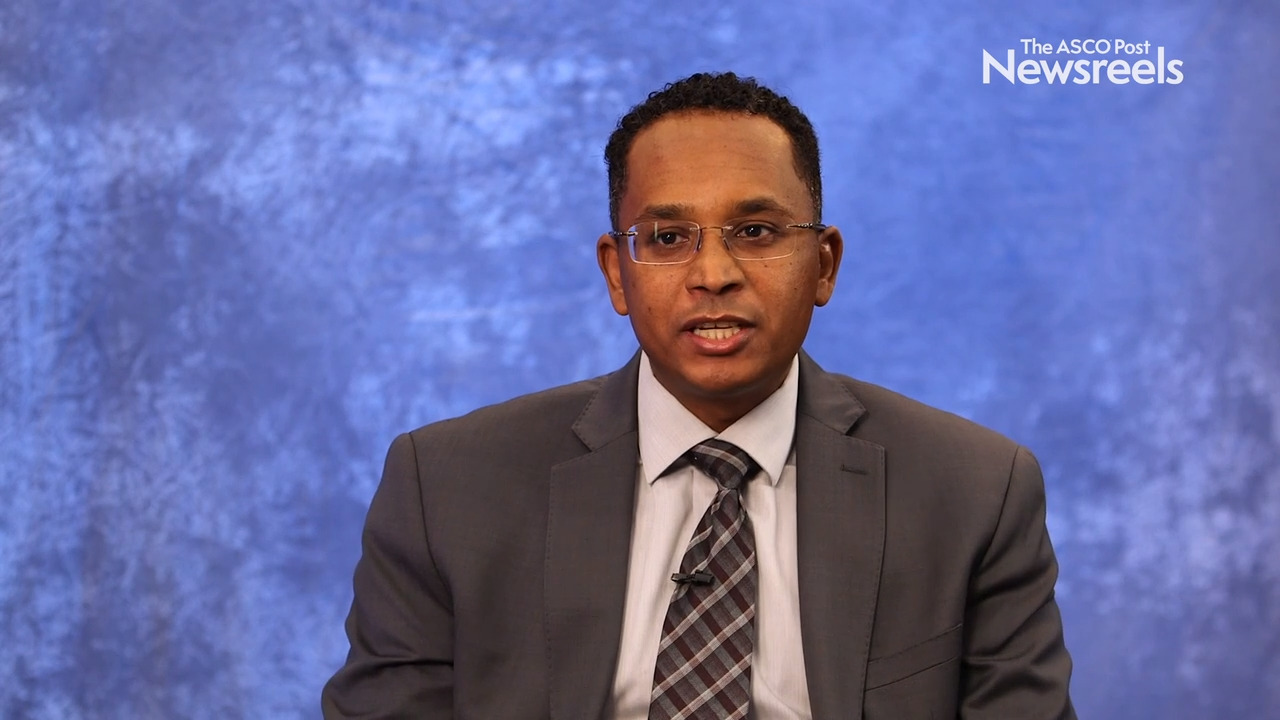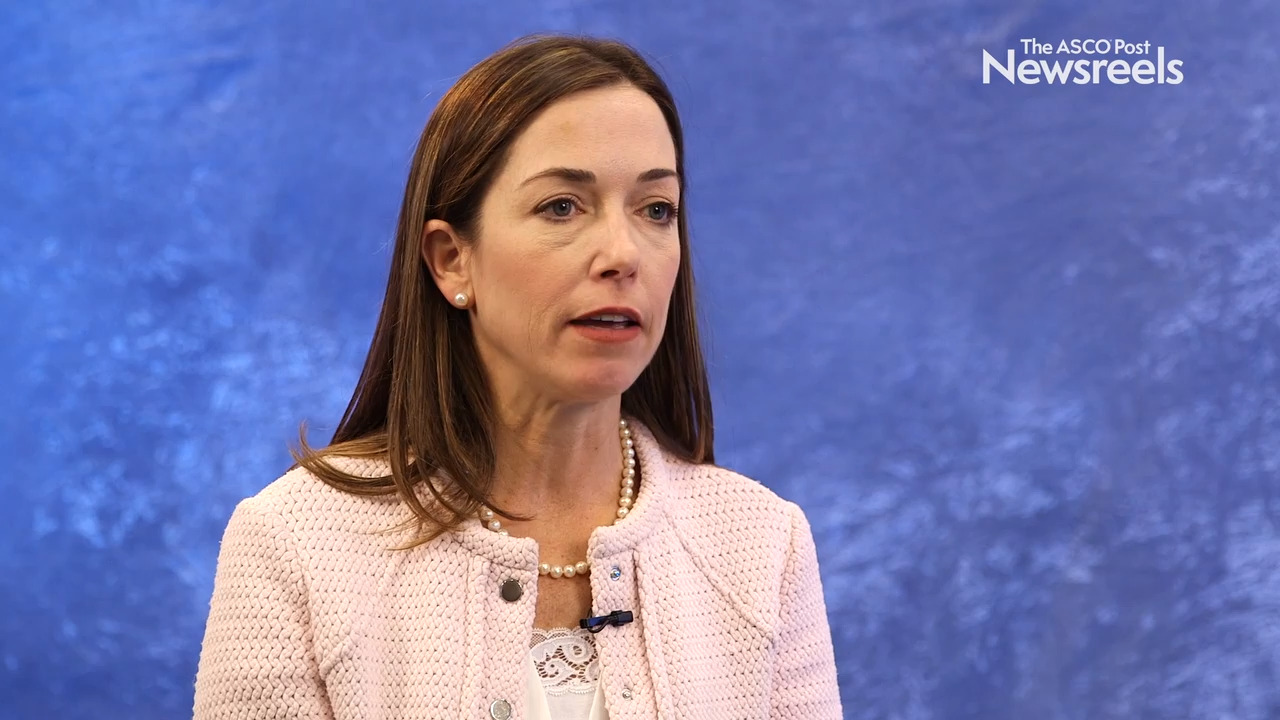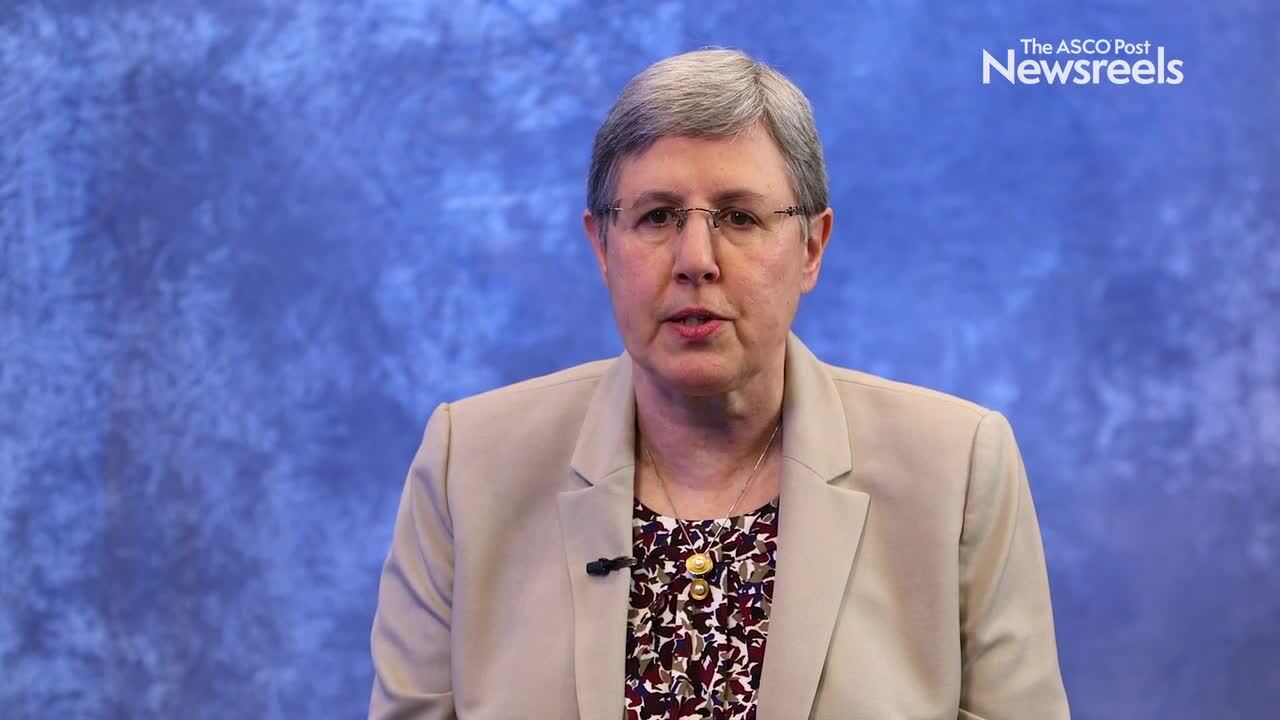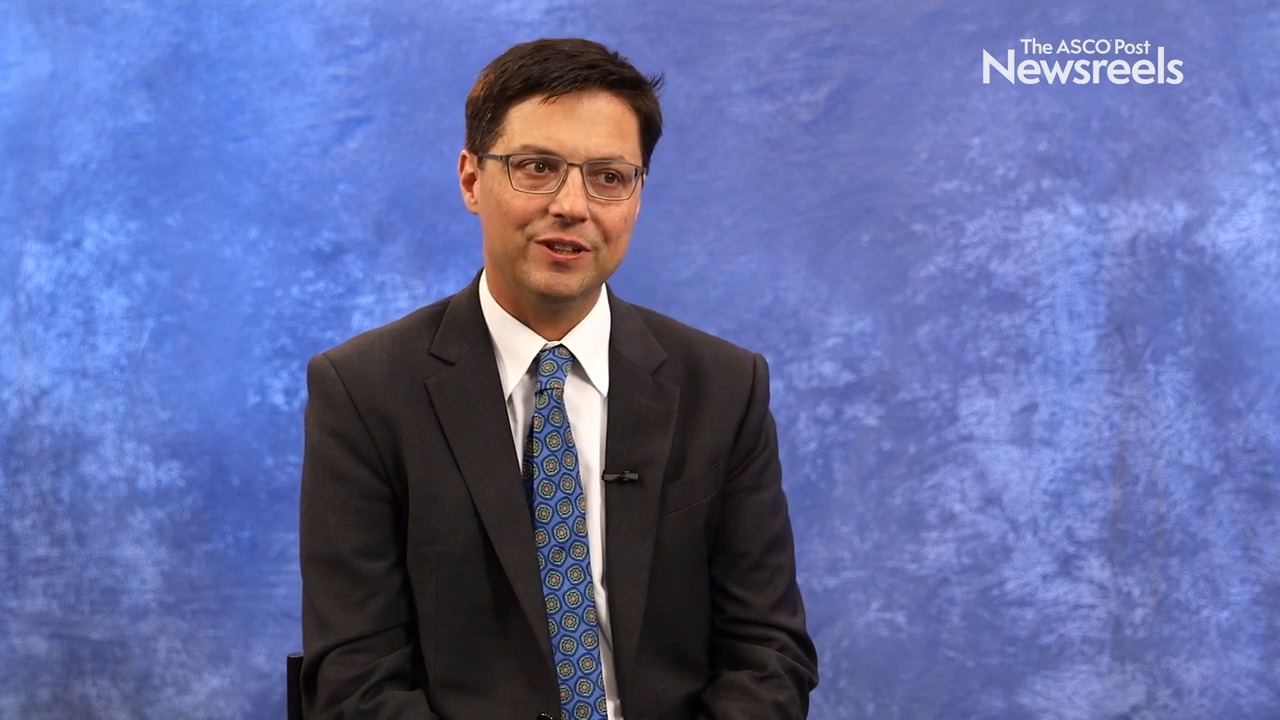Åsmund A. Fretland, MD, on Colorectal Cancer Liver Metastases: Laparoscopic vs Open Resection
2019 ASCO Annual Meeting
Åsmund A. Fretland, MD, of Oslo University Hospital, discusses clinical trial findings on survival outcomes after laparoscopic vs open resection for colorectal liver metastases. The study he conducted with his team showed that the laparoscopic procedure did not jeopardize long-term survival (Abstract LBA3516).
Richard Pazdur, MD, Director of the U.S. Food and Drug Administration (FDA) Oncology Center of Excellence and Acting Director of the Office of Hematology and Oncology Products in the FDA’s Center for Drug Evaluation and Research, discusses the launch of Project Facilitate, a new pilot program to assist oncology health-care professionals in requesting access to unapproved therapies for patients with cancer.
Contact Information for Project Facilitate
Health-Care Professionals
Call: 1-240-402-0004
Patients and Their Families
Call: 301-796-3400
Hani M. Babiker, MD, of the The University of Arizona, discusses an emerging treatment that inhibits the mitotic spindle and disrupts tumor cell growth. The method has been approved by the FDA to treat some cancers and data show improved progression-free and overall survival (Abstracts 2055, 8551, e14658, e14668, e15653, e20069, e15766).
Sara A. Hurvitz, MD, of the David Geffen School of Medicine, University of California Los Angeles, discusses 3-year outcomes from the first phase III study to test a non-conventional regimen for the neoadjuvant and adjuvant treatment of HER2-positive breast cancer (Abstract 500).
Amy J. Davidoff, PhD, of Yale University School of Public Health, discusses study findings on how expanding access to Medicaid through the Affordable Care Act (ACA) reduced racial disparities among patients with advanced cancer. Before the ACA was implemented in 2014, black patients with cancer were less likely than white patients to receive timely treatment, but in states that did not adopt Medicaid expansion, racial disparities persist (Abstract LBA1).
Leonard J. Appleman, MD, PhD, of UPMC Hillman Cancer Center, discusses phase III trial findings that showed a trend toward worse survival with pazopanib in patients with metastatic kidney cancer who exhibited no evidence of disease following metastasectomy (Abstract 4502).
